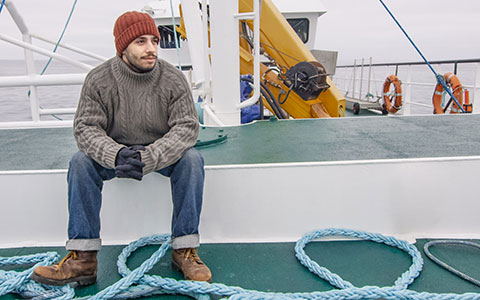
Labor abuse in global supply chains often exists alongside other abuse and corruption issues. The U.S. government has a wide range of legislation and processes related to labor although they are not focused on addressing labor concerns.
Treasury Sanctions
The Office of Foreign Assets Control (OFAC) of the U.S. Department of the Treasury administers and enforces economic and trade sanctions based on U.S. foreign policy and national security goals. The sanctions can be either comprehensive or selective, using the blocking of assets and trade restrictions to support U.S. goals.
Kimberly Process Clean Diamond Trade Act and EO 13312
The Kimberley Process (KP) is an international, multi-stakeholder initiative created to increase transparency and oversight in the international diamond trade to eliminate the trade in conflict diamonds and rough diamonds sold by rebel groups or their allies to fund conflict against legitimate governments. The Clean Diamond Act of 2003 and Executive Order (EO) 13312 commits the U.S. government to the KP and establishes a framework for how the U.S. implements that commitment.
SEC Regulations: Section 1502 of the Dodd-Frank Wall Street Reform and Consumer Protection Act (“Dodd-Frank Act”)
The Dodd-Frank Act directs the U.S. Securities and Exchange Commission (SEC) to issue rules requiring certain companies to disclose their use of conflict minerals if those minerals are “necessary to the functionality of production of a product” manufactured by those companies. Under the Act, those minerals include tantalum, tin, gold, or tungsten. Section 1502 of the Act requires a company to disclose the use of conflict minerals to the SEC.
NOAA Seafood Import Monitoring Program

The National Oceanic and Atmospheric Administration (NOAA) is responsible for the stewardship of the U.S.’s ocean resources and their habitat. The Seafood Import Monitoring Program (SIMP) aims to keep illegal, unreported, and unregulated (IUU) seafood catch out of domestic markets through a risk-based traceability program that requires importers to report key data on the point of harvest to entry into U.S. commerce on 1,100 species imports. SIMP covers nearly half of all U.S. seafood imports. SIMP establishes reporting and recordkeeping requirements for these seafood imports to combat IUU fishing and misrepresented seafood from entering U.S. commerce. By providing a screening and deterrent tool for IUU fish and fish products, and misrepresented seafood products entering the U.S., SIMP strengthens the U.S. economy, global food security and the sustainability of shared ocean resources. The U.S. government’s approach includes systemic program reviews of SIMP and an informal interagency taskforce to engage and seek broad input on SIMP from stakeholders, including industry, non-governmental organizations, other federal agencies, congressional representatives, and foreign governments.
Lacey Act
The Lacey Act combats illegal trafficking of wildlife, fish, and plants. Criminal networks engaged in trafficking cause harm throughout the wildlife product supply chain by pressuring people with few economic options into poaching, corrupting those that help transport illicit goods, and selling items of questionable social or medicinal value to consumers who often do not understand the true costs of their consumption choices.
Global Magnitsky Human Rights Accountability Act
The Global Magnitsky Human Rights Accountability Act authorizes the President to impose economic sanctions and deny entry into the U.S. to any foreign person identified as engaging in human rights abuses or corruption.
- U.S. Department of State Reports and Press Releases
- U.S. Department of the Treasury Guidance and FAQs
National Climate Task Force

To address pressing environmental challenges, such as pollution and climate change, nations and businesses need to transition towards greener, resilient, and climate-neutral economies and societies. As outlined by the Executive Order on Tackling the Climate Crisis at Home and Abroad, the Task Force is chaired by the National Climate Advisor and includes Cabinet-level leaders from more than 25 federal agencies to mobilize the Biden-Harris Administration’s implementation of a whole-of-government approach.
